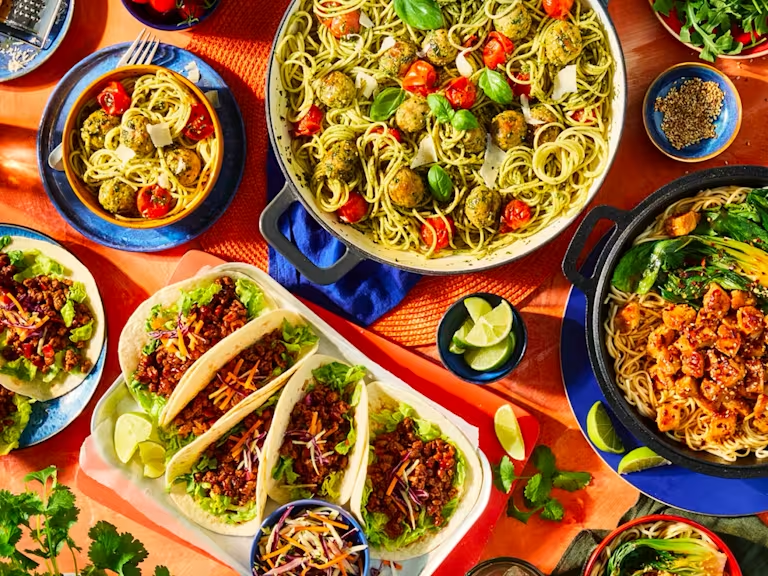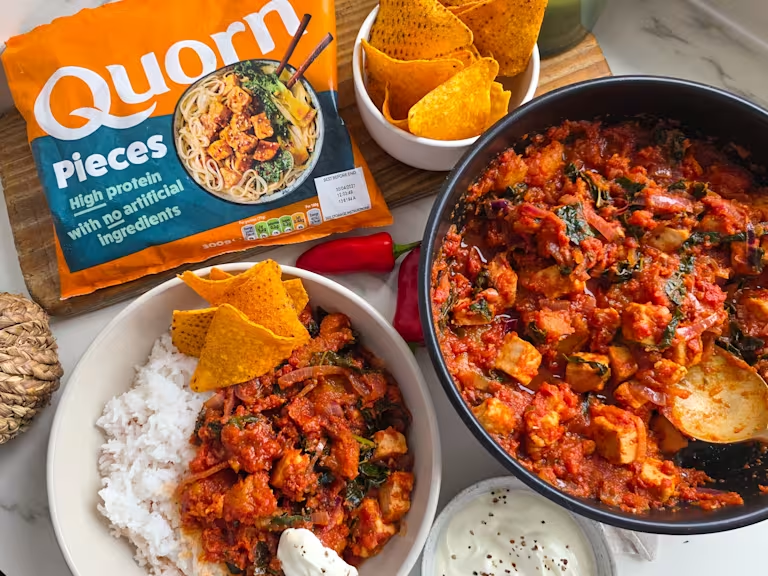
Rhiannon Lambert’s Top Tips for Creating Nutritious Family Dinners
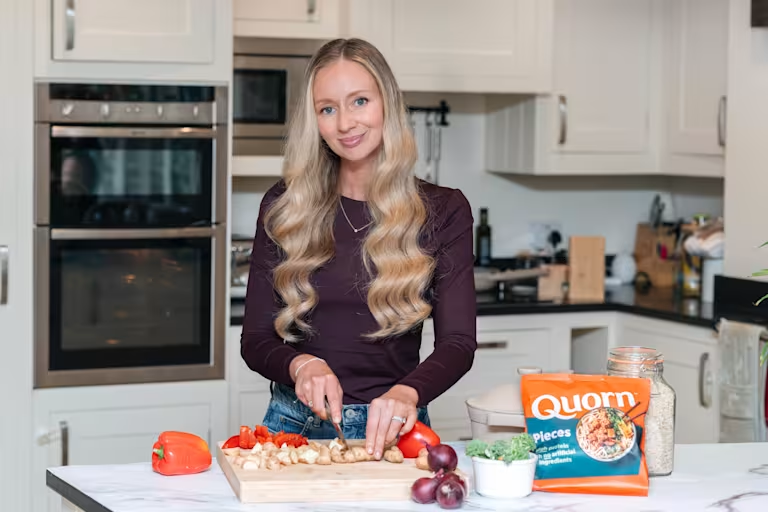
Getting a healthy meal on the table every evening can feel like a juggling act. Between work, school, after-school clubs and the general chaos of family life, cooking often ends up being squeezed into the smallest window of the day. It’s no surprise that many of us reach for whatever is quickest - but quick doesn’t have to mean less nutritious! With a little planning and a few smart swaps, family dinners can be simple, balanced, and tasty enough to keep everyone happy. The key is having ingredients you can rely on, which includes foods that are versatile, quick to cook, and nourishing at the same time. That’s where freezer staples really come into their own.
I’m a big advocate for frozen foods. They’re often more cost-effective than fresh, and they also help reduce food waste by keeping ingredients usable for longer.
There’s also a common misconception that frozen foods are less nutritious than fresh, but research shows that freezing preserves nutrients effectively, meaning frozen produce can contain similar levels of vitamins and minerals compared to fresh. Having a well-stocked freezer means you’re never far from a quick, nutritious meal, even when plans change at the last minute. And with less waste and a lighter environmental footprint, frozen options can be a more sustainable choice too. That’s why I always recommend keeping a few reliable freezer staples on hand. Quorn’s refreshed frozen range, including their Pieces and Mince, now made with just three or four ingredients and no artificial ingredients is a great example. High in protein, a source of fibre, and low in saturated fat, they make it easier to get healthier meals on the table, even when time is short. From a speedy stir-fry to curry or a family-favourite bolognese, these staples strike the balance between health, convenience, and taste!
As a Registered Nutritionist, I know that healthier family mealtimes aren’t just about choosing one ingredient - it’s about the bigger picture. Planning ahead, shopping smart, and building a few simple kitchen habits can make all the difference when it comes to putting balanced meals on the table during a busy week. Here are my top tips for making family meals healthier, quicker and more achievable:
1. Opt for frozen foods
Frozen ingredients can be a real lifesaver on busy evenings. Vegetables, fruits and meat free proteins from the freezer are often just as nutritious as fresh, while lasting longer and reducing waste. Having freezer staples on hand means you can put together a balanced meal in minutes, whether that’s tossing frozen veg into a stir-fry, blending frozen berries into a smoothie, or cooking up Quorn Pieces straight from the freezer for a quick curry.
2. Plan your meals and make a shopping list
Taking ten minutes at the weekend to plan the week’s meals can save time, stress, and money. Having a list in hand helps you shop with purpose, cut down on impulse buys, and make sure you’ve got a good mix of vegetables, wholegrains, and proteins ready to go. Including freezer staples like Quorn Pieces or Mince means you always have the foundation of a healthy meal on hand, even if plans change at the last minute.
3. Shop smart on a budget
Healthy eating doesn’t have to be expensive. Plan meals before you shop (as mentioned above), buy in-season fruit and veg, and make the most of frozen or canned options which last longer and reduce waste. Stretching proteins is another smart strategy, for example, combining Quorn Mince with lentils in a bolognese gives you more portions, extra fibre, and better value for money.
4. Keep balanced plates in mind
A simple way to think about balance is to fill half the plate with vegetables or salad, a quarter with starchy carbohydrates like rice, pasta or potatoes, and a quarter with a source of protein. Quorn’s frozen ingredients fit neatly into that protein quarter while also contributing fibre to your daily intake - something meat doesn’t provide. Here in the UK, recent data suggests that around 96% of adults are not meeting the recommended 30g of fibre per day, with most of us averaging closer to 20g. That shortfall matters because fibre plays a vital role in digestion, heart health, and long-term disease prevention. So any product that contains fibre can help families close that gap more easily.
5. Look at the bigger picture, not just the label!
When it comes to choosing foods, it’s important to consider the full nutritional profile rather than focusing only on whether something is classed as “ultra-processed”. Some foods in this category can still provide essential nutrients like protein, fibre, vitamins, and minerals, and they can also be affordable and convenient options too. Checking the balance of protein, fibre, fats, and sugars on the traffic light system is often a more reliable guide to how a food fits into your diet. This helps you make informed choices based on nutrition and balance, instead of relying only on whether something is labelled as ultra-processed. Remember, not all UPFs are bad, and some can have a place in a healthy, balanced diet.
6. Batch cook when you can
Cooking larger portions takes little extra time but will likely pay off throughout the week. A big pot of Quorn chilli using their Mince, now made with no artificial ingredients, for example, can be frozen in individual portions for quick dinners later on, or used the next day as a topping for jacket potatoes, stirred through pasta, or wrapped up in tortillas. It’s the “cook once, eat twice” approach that I live by - saving time, reducing waste, and making sure there’s always a balanced meal ready to go. Batch cooking is also budget-friendly, as it helps you stretch ingredients further and avoid unnecessary midweek top-up shops.
7. Try more one-pot meals
One-pot dishes are a lifesaver for busy families - fewer pans, less washing up, and flavours that come together really well. Think risottos, curries, or a simple vegetable and bean stew. Add Quorn Pieces for a protein boost or bulk out with extra vegetables and pulses for a balanced, filling meal with minimal fuss.
8. Get everyone involved
Children are often more open to trying new foods when they’ve had a role in making them. Simple jobs like washing vegetables, stirring a sauce, or choosing toppings with child-friendly knives can make mealtimes feel more fun and interactive. Quorn’s mild flavour makes it an easy base for experimenting with herbs, spices and world flavours without overwhelming younger tastebuds, and letting kids get hands-on is a great way to build confidence and curiosity around food.
9. Keep healthy swaps simple
Small changes, made consistently, can make a big difference over time. For example, swapping higher-fat meats for Quorn Mince in a spaghetti bolognese or chilli lowers saturated fat intake while still delivering the familiar taste and texture that families enjoy. Using Quorn Pieces in a curry or stir-fry is another easy swap that cuts down on saturated fat while adding fibre - something meat doesn’t provide.
10. Don’t aim for perfection
When it comes to family meals, aiming for balance is far more realistic than aiming for perfection. Busy evenings happen, and not every dinner will be home-cooked from scratch - and that’s totally okay. What matters most is the overall pattern. Focusing on small, sustainable changes, like including an extra portion of vegetables, using wholegrain pasta, or swapping in Quorn once or twice a week, can have a real impact over time. Keeping versatile staples in the freezer, like Quorn Pieces and Mince or frozen vegetables, provides a reliable safety net so you can still pull together a balanced meal even on the most hectic days.
As a mum of two, I completely understand how difficult mealtimes can feel. Some days it’s a win just getting everyone fed, and that’s okay. What I’ve learned is that having a few reliable staples on hand, whether that’s Quorn Pieces in the freezer, a tin of beans in the cupboard, or a batch of leftovers in the fridge, takes the pressure off. Healthy eating doesn’t need to be perfect; it just needs to be realistic and work for you and your family.
Guest blog by Rhiannon Lambert.
Rhiannon Lambert is one of the UK’s leading nutritionists and Sunday Times bestselling author. She is also the founder of the Rhitrition Clinic and co-hosts the chart topping podcast, The Wellness Scoop. Her new book, The Unprocessed Plate, is available now! The Unprocessed Plate is a transformative guide filled with delicious recipes to help you un-process your life and embrace a healthier way of eating.
Recent news
All news
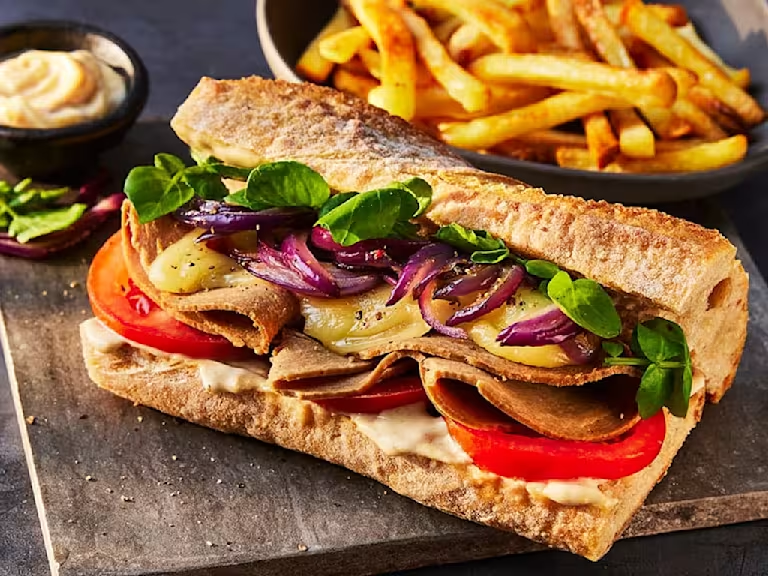
The Ultimate Sandwich Guide

Sustainability WINNERS – FDF Awards 2025
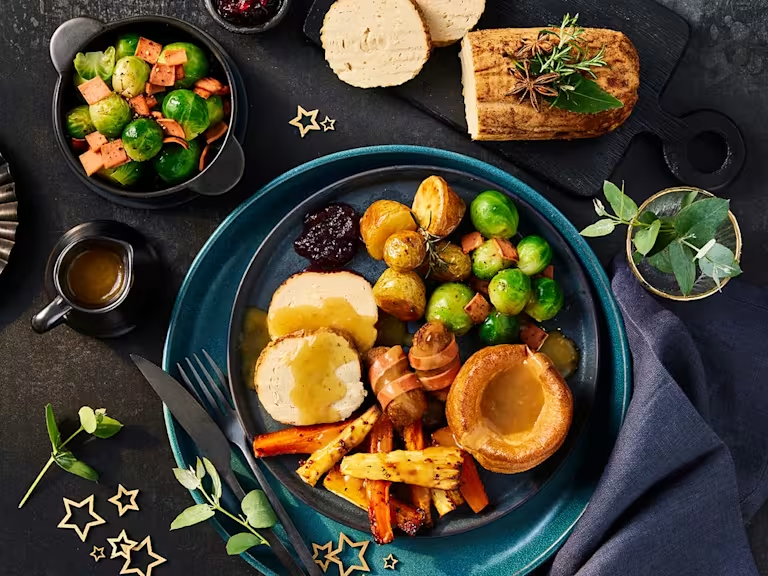
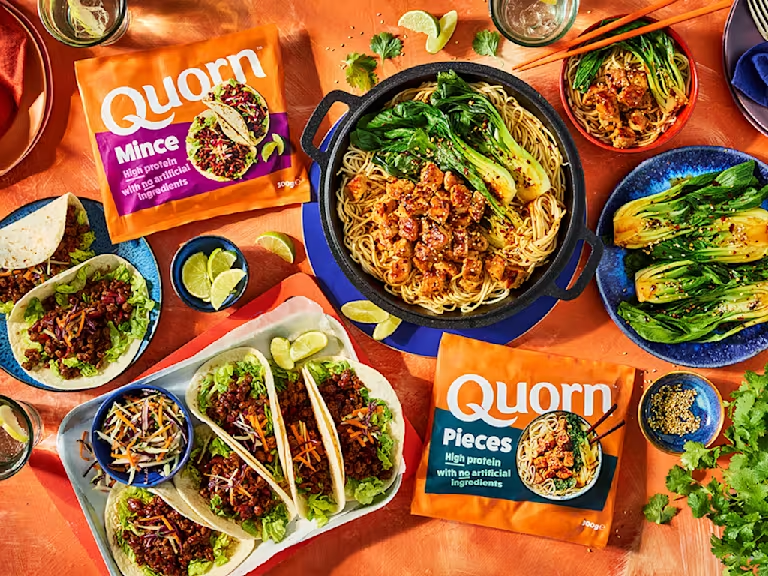
No Artificial Ingredients
